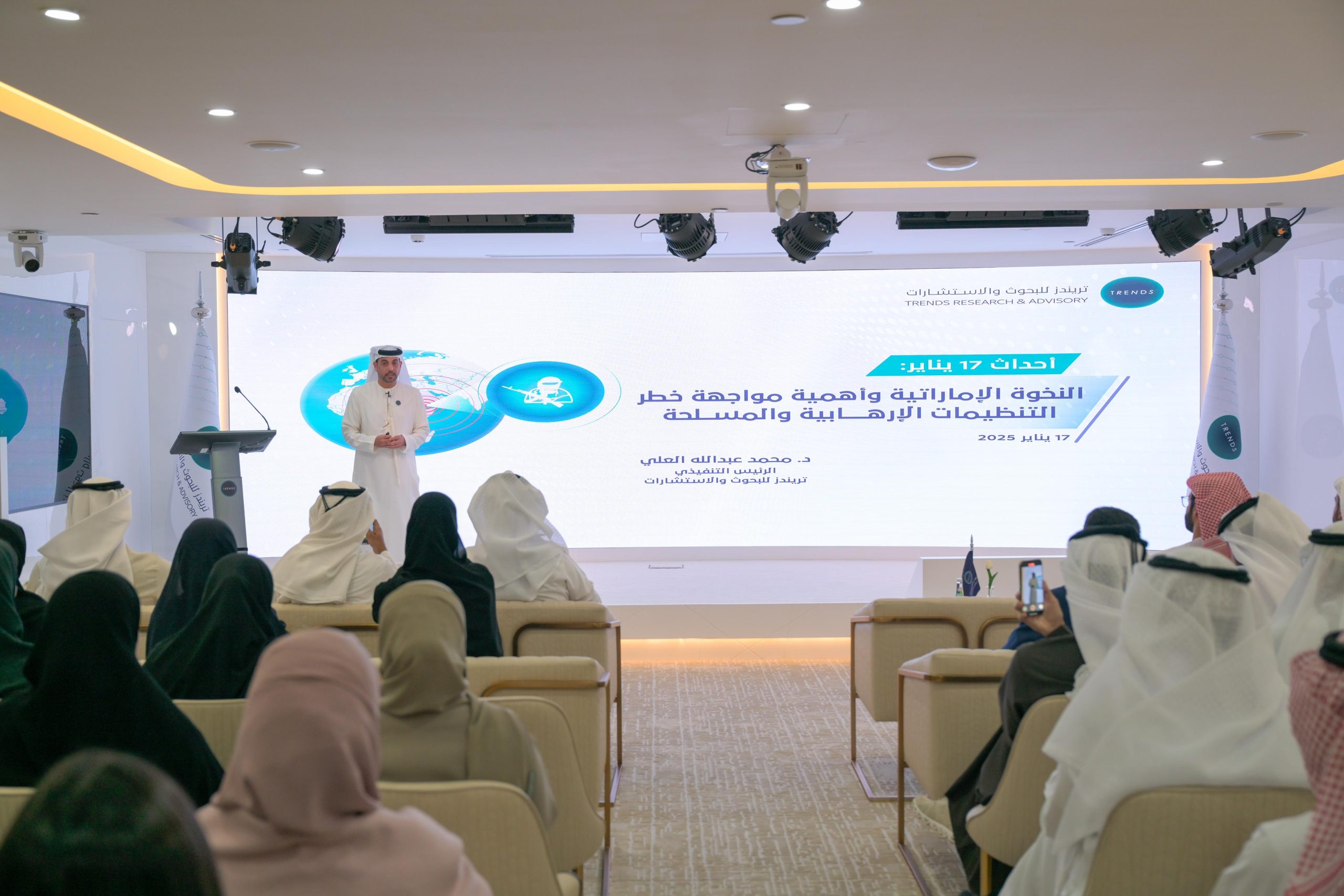Dr. Mohammed Al-Ali:
- Combating the Houthis is imperative to protect regional security
- The UAE’s role embodies the Emirati Nakhwah
TRENDS Research & Advisory organized a panel discussion titled “The Events of January 17: The Emirati Nakhwah and the Importance of Confronting Terrorist and Armed Organizations,” featuring a distinguished group of researchers and experts.
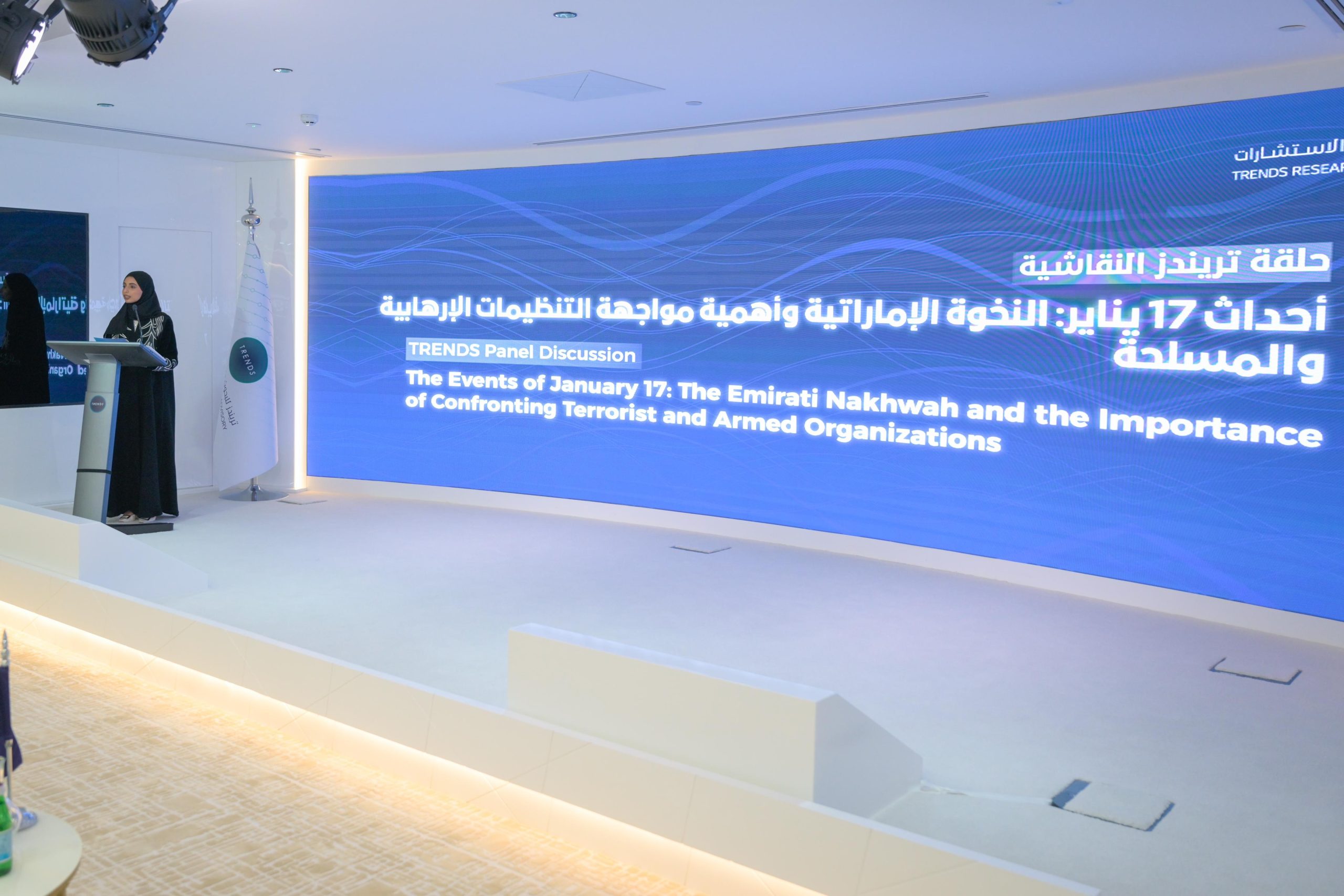
During the discussion, Dr. Mohammed Abdullah Al-Ali, CEO of TRENDS, addressed four main themes: the manifestations of the Houthi threat to regional security, the UAE’s support for the legitimate government and assistance to the Yemeni people in confronting this group’s threat as a reflection of the UAE’s inherent values of nakhwah and valor, the lessons learned from the events of January 17 at national, regional, and even international levels, and the importance of a collective response to the threat of terrorist and armed organizations as a foundation for achieving regional stability and prosperity.
Dr. Al-Ali explained that the Houthis pose a direct threat to maritime security in the Red Sea and the Indian Ocean, targeting international shipping lanes and vital commercial ports. This disrupts global trade and jeopardizes the economic security of Gulf countries in particular.
He stated that the Houthi militia is part of a broader regional project aimed at undermining the security and strategic interests of the region’s nations.
Continued Houthi control over parts of Yemen could transform the country into a source of threats to other nations, especially with the group’s development of drones and the transfer of ballistic missile technology to other terrorist organizations.
Dr. Al-Ali pointed out that the Houthis’ repeated attacks on civilian infrastructure in GCC states are not only assaults on national sovereignty but also blatant violations of international law, posing threats to regional security and stability. He emphasized that such attacks require a strong international response to prevent severe repercussions for global peace and security.
Highlighting the UAE’s role, Dr. Al-Ali commended the nation for supporting the legitimate government and the Yemeni people in combating the Houthi threat. He praised the UAE’s actions as a true embodiment of its values of nakhwah, valor, and the deeply rooted principles of solidarity and cooperation within its society.
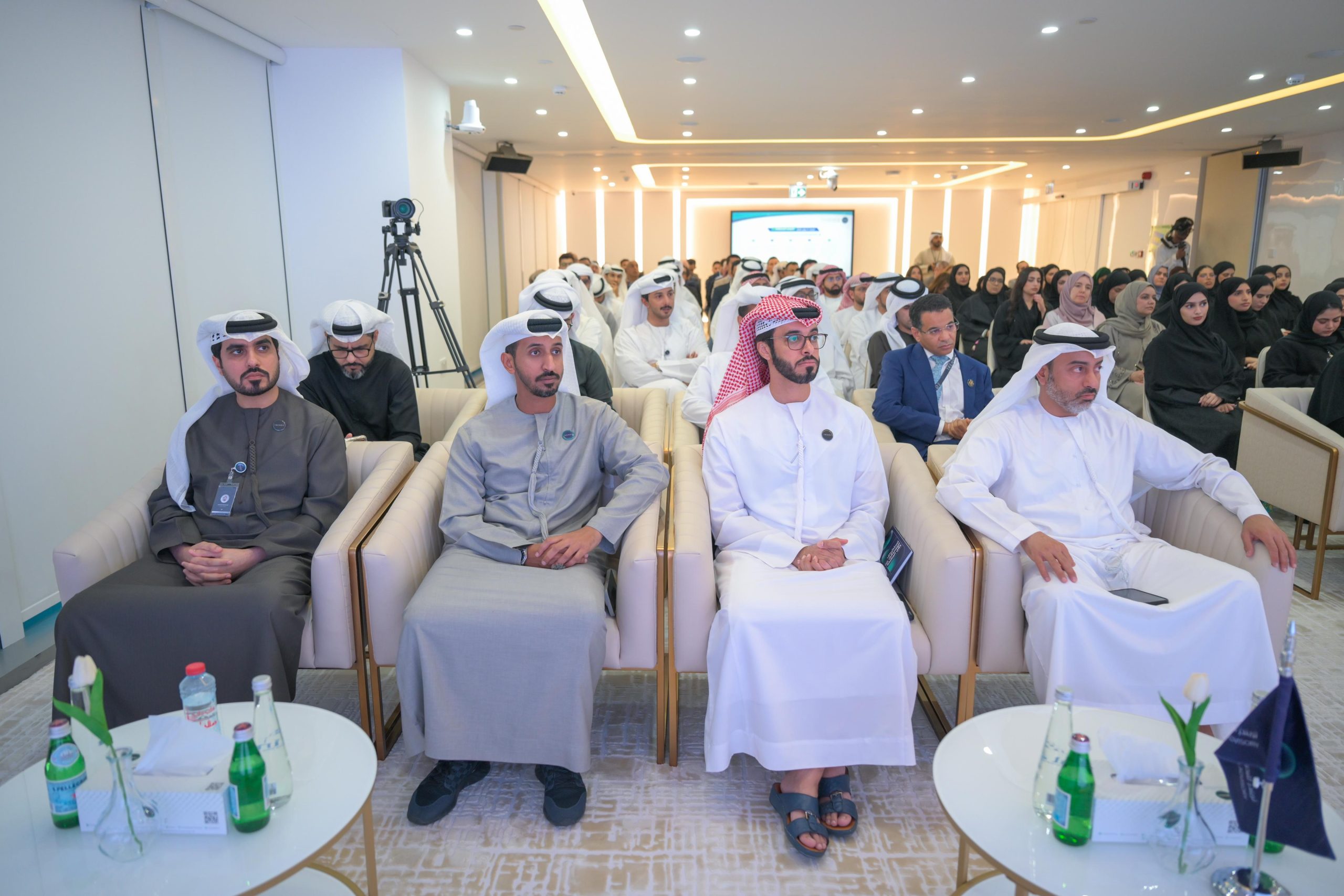
Dr. Mohamed Al Ali mentioned that, as part of the Emirati Nakhwah, the UAE provided more 23 billion dirhams in aid to Yemen between 2015 and 2021, noting that 16.3 million Yemenis received food assistance, and 11.4 million received healthcare services, in collaboration with the United Nations. Moreover, the UAE provided $1.2 billion in support to Yemen during the same period, with $325 million allocated for health and infrastructure. The UAE also supported a UN program by donating $1.2 billion to assist Yemen, covering 22 governorates and benefiting 17.2 million Yemenis. The aid was distributed across 11 key sectors and 21 sub-sectors, in addition to the renovation and rehabilitation of three airports and three seaports, the vaccination of 13 million Yemenis…
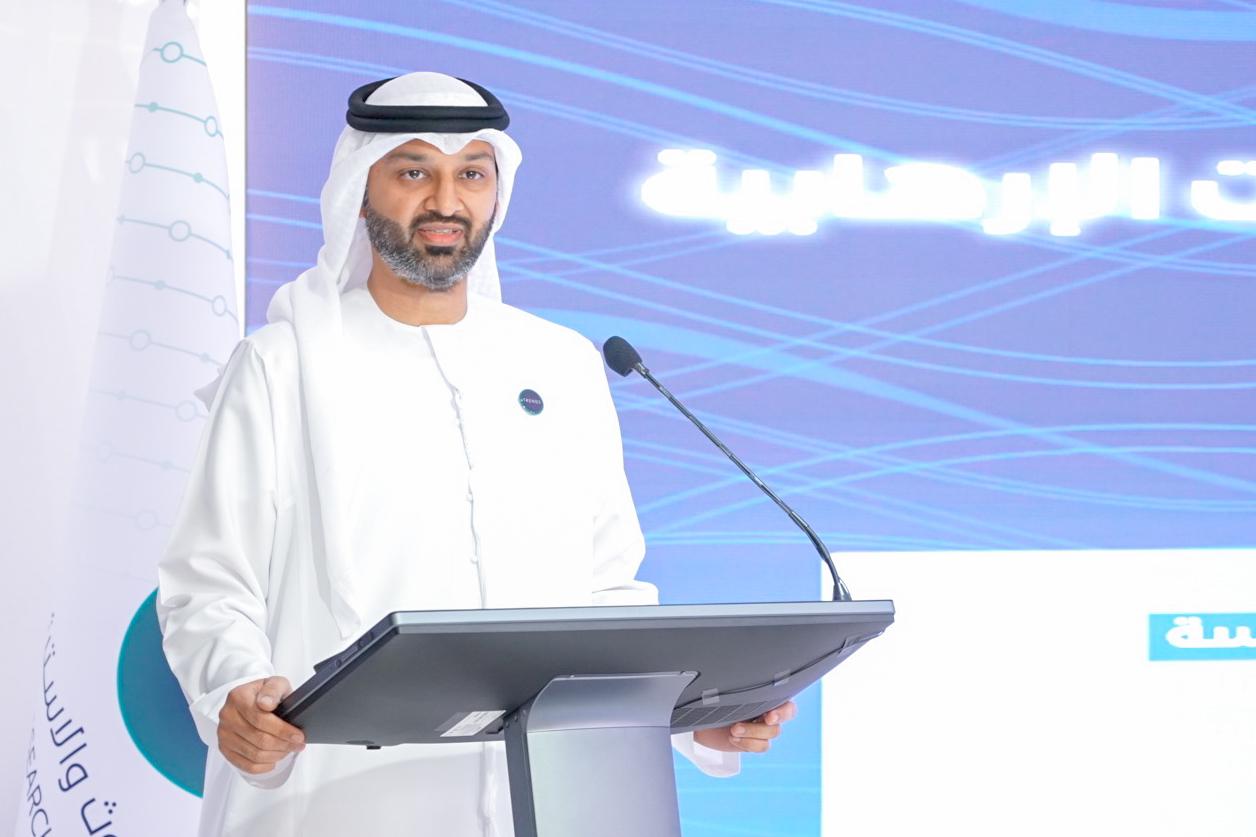
The panel, moderated by Fahad Jameel Ahmed from TRENDS, focused on the key lessons learned from those attacks. Dr. Al-Ali stressed the importance of adopting a proactive approach to addressing external threats. Enhancing capabilities in collaboration with international partners is crucial for countering the global nature of terrorist organizations.
Dr. Al-Ali underscored the importance of societal solidarity in facing crises, citing the exemplary response of the Emirati people during the January 2022 attacks as a model of national cohesion and support for leadership. He noted that internal unity strengthens a nation’s resilience against various security challenges.
Dr. Al-Ali outlined strategies to combat the threat of terrorist organizations, particularly the Houthis. These strategies include enhancing regional defense readiness by developing advanced air defense systems and modern military technologies, increasing regional and international cooperation through strengthened security partnerships and effective intelligence sharing to address cross-border threats, supporting stability in Yemen by bolstering international efforts to resolve the Yemeni crisis, rebuilding the Yemeni state, and ensuring its stability to prevent exploitation by terrorist groups. Additionally, he emphasized countering external interventions that support terrorist organizations and deterring those that use these groups to achieve their expansionist goals in the region. He also highlighted the importance of promoting societal solidarity to counter media campaigns aimed at destabilizing the region and strengthening national spirit by supporting the internal front.
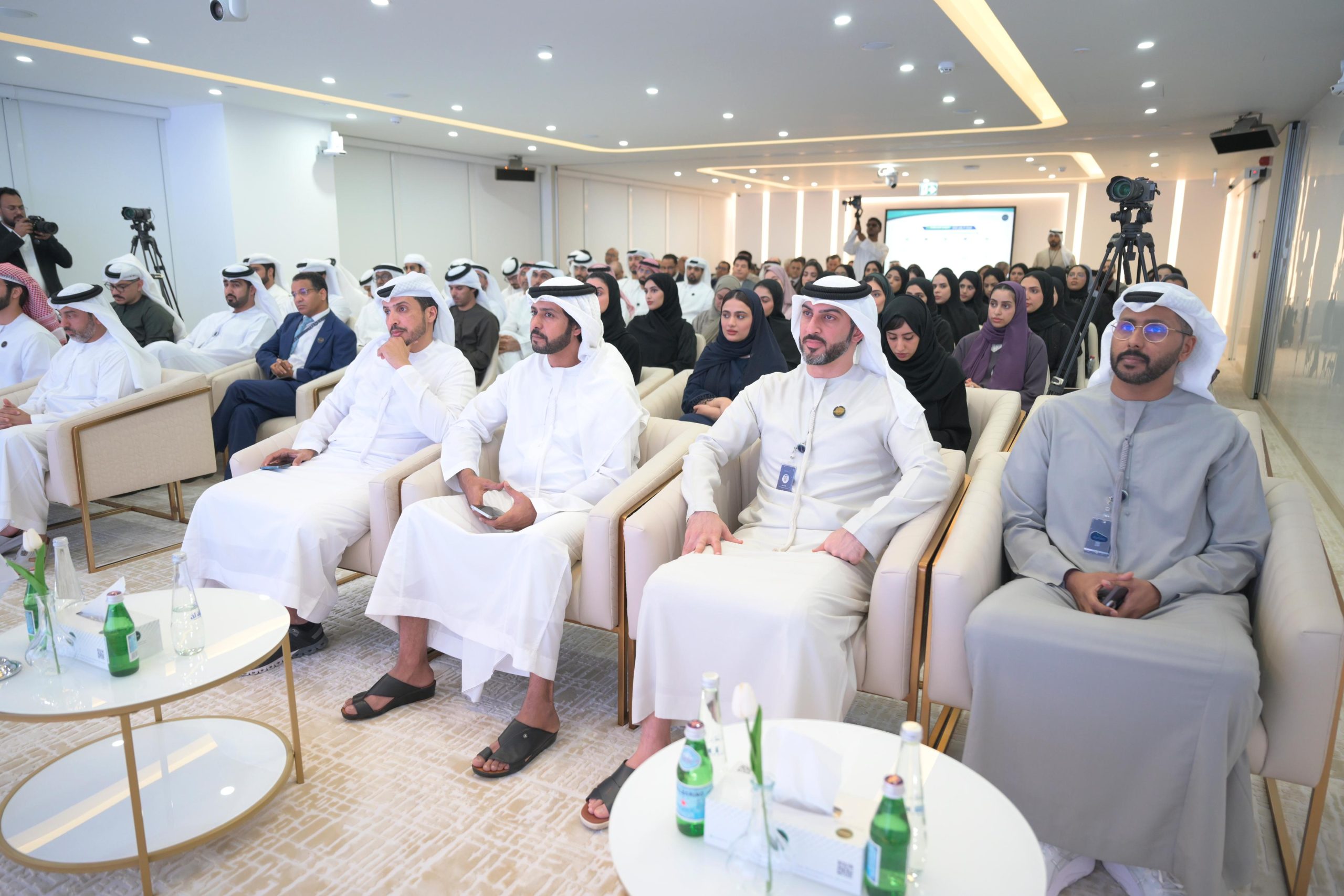
Dr. Al-Ali concluded that countering the threat of terrorist organizations, especially the Houthis, requires a coordinated international effort involving not only regional countries but also major global powers and international institutions. He warned that continued negligence in addressing these threats could lead to catastrophic consequences for international security and stability, particularly given the Houthis’ threats to international shipping lanes in the Red Sea.
In his closing remarks, Dr. Al-Ali emphasized the need to enhance dialogue between regional nations and the international community and to develop long-term strategies to counter the threat of terrorist organizations. He affirmed that TRENDS Research & Advisory will continue its research efforts in this area, providing studies and recommendations based on the latest research and reports to support strategies addressing current and future challenges.



